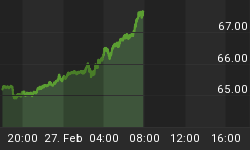As Americans have justifiably lost faith in the stock market, the classic buy-and-hold investment strategy has fallen from favor. The problem is that retail investors are wrongly equating the performance of stocks as a class with the trajectory of American stocks in particular. Fortunately, buy-and-hold still works in many parts of the world. If you are an American, just don't try it at home.
The US market is in sorry shape. The Dow Jones Industrial Average and the S&P 500 are presently no higher than they were 12 years ago. If you factor in 12 years worth of inflation, then these results are abysmal. Although American stocks have gone nowhere, extreme economic stress has nevertheless created huge swings of volatility. During the past decade, US stocks have surged 50%, plunged by similar amounts, and then risen and fallen again.
To be a successful player in such a volatile, directionless market requires the kind of knowledge and vigilance that only the best financial professionals possess. The key to trading is the flexibility to make very short-term movements in and out of stocks and sectors, combined with rigorous sell discipline. Oftentimes it means placing a short-term bet on a company and sector even if one believes the move makes no long-term sense. As these capacities are not common among retail investors, who can blame them for heading to the exits?
While attention is often showered on the traders who find success with short-term momentum plays, less attention is paid to fundamental economic growth, which is, after all, the main reason that rank-and-file investors profit from the market. A growing economy lifts all boats, and brings buy-and-hold investors along for the ride.
In recent times, the long-term trend of a massive shift in growth from American and European developed economies to emerging economies, especially to China, has benefitted greatly the buy-and-hold strategies of investors following that mega-trend. I believe that this trend will likely continue over the long-term. I also believe that emerging-market stocks will not be as vulnerable to the next downturn in US stocks as they were in 2008.
Recent conclusions from a number of high-profile research organizations support this forecast. According to IMF estimates, developing economies' debt will average about 40 percent of their gross domestic product this year, compared with 107 percent in advanced economies. The IMF believes that this comparatively lower debt burden will help the developing economies grow 6.4 percent as a group in 2011, greatly surpassing the 2.4 percent expansion expected in the developed world.
According to Morgan Stanley, emerging-market companies are finding better opportunities to reinvest their earnings, producing a return on equity of 14.8 percent, compared with 10.2 percent in the developed world. *
However, despite this tremendous growth and profitability, shares in the emerging markets remain at attractive valuations relative to the mature economies. In fact, data compiled by Bloomberg shows that for the past decade, except for the 10-month period ending in May 2008 (right before the crisis began), emerging-market shares consistently traded at lower earnings multiples than developed markets. The MSCI Emerging Markets Index has traded at an average discount of about 30 percent to the MSCI World Index during the past 10 years, the data show. *
Buy-and-hold remains a viable strategy for foreign stock investing at current valuations. The popular alternative, keeping savings in US bank accounts and bonds, is an increasingly risky strategy, in my opinion. While a natural recession would benefit savers and bondholders, as decreasing prices make a penny saved into a penny earned, the US government is determined to continue intervening in the market.
Washington, whether it is controlled by Democrats or Republicans, is unlikely to ever suffer the political consequences of stepping back in the face of recession. So, even while some form of austerity is sorely needed, it is extremely unlikely to be enacted.
Instead, more useless economic stimulus is likely to materialize. While huge infusions of government spending will create the short-term illusion of recovery, the result most likely will be greatly increased taxes, massive debt increases, a further lurch from private-sector wealth creation toward public consumption - and, finally, debasement of the US dollar.
So, retail investors sitting in US bonds and bank accounts will ultimately pay a steep price through inflation. The answer, it seems, is not to abandon stocks, but rather US stocks. Not to abandon buy-and-hold, but to adopt buy-and-hold-elsewhere. And if you were never a stock buyer, there's always the security of physical precious metals.
* This material includes content referenced from third parties. Euro Pacific Capital does not guarantee the accuracy and completeness of third-party content. In addition, opinions expressed by third parties are not necessarily those of Euro Pacific Capital.
Please note: Opinions expressed are those of the writer. Past performance does not guarantee future returns, investments may increase or decrease in value and you may lose money.
For in-depth analysis of this and other investment topics, subscribe to Peter Schiff's Global Investor Newsletter. Click here for your free subscription.
Click here to download Peter's latest Special Report: My Five Favorite Gold & Silver Mining Stocks.
Be sure to pick up a copy of Peter Schiff's just-released economic fable, How an Economy Grows and Why It Crashes. Click here to learn more and order.















